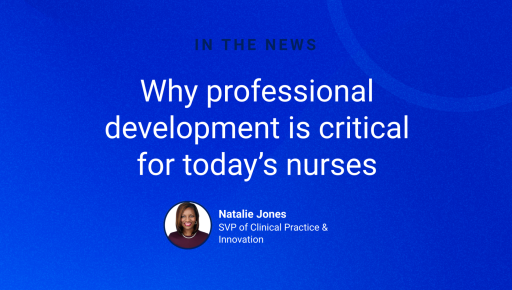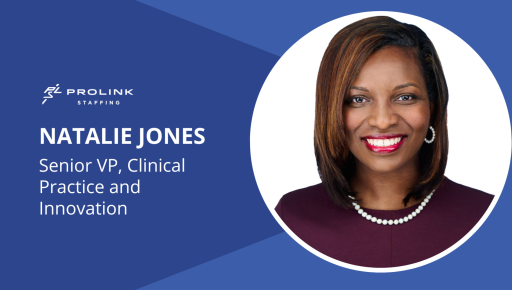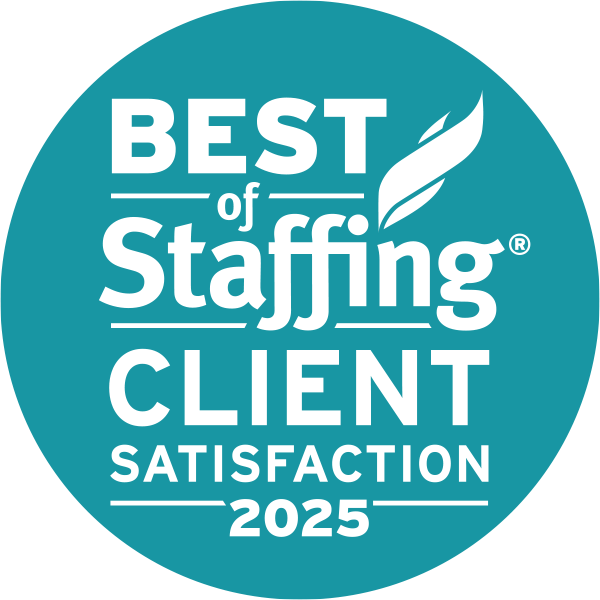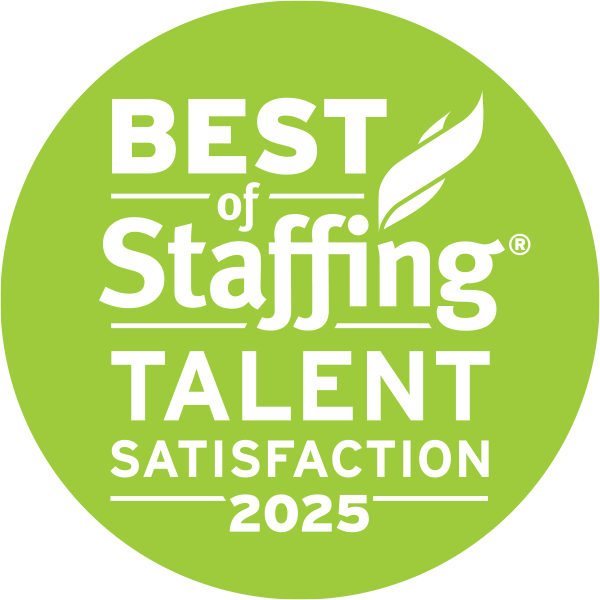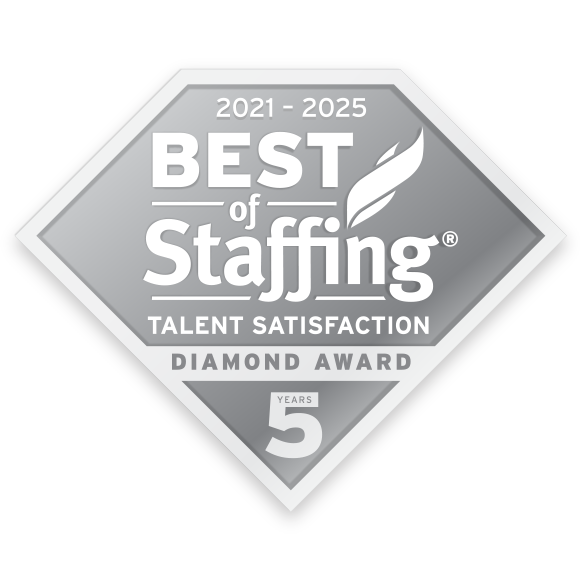Healthcare jobs are increasing at a fevered pace. Not only have job postings for clinical and non-clinical jobs increased by 35%, but nearly half of the nation’s top 100 jobs are in the healthcare spectrum. Healthcare facilities are seeing a shortage of nurses, due to the demand caused by COVID-19, and a shortage of doctors, as many are reaching retirement age. What this means is that, whether you are certified as a healthcare professional or you’re thinking about entering the medical field, the time to start your job search is now.
With so many positions available, it’s a job hunter's market, and you can largely choose where you want to work. Here are some pointers to help you find your ideal job within the healthcare field.
Why Enter Healthcare Now?
Healthcare occupations of all types are becoming more abundant every day and the industry is expected to add more jobs than any other occupational group. That means whether you have ambitions to become an athletic trainer, registered nurse, medical transcriptionist, or home health aide, there has never been a better time to begin your career journey.
There are clinical and non-clinical positions available across the country, and all over the world. By specializing in a particular field, you can potentially increase your earnings. That means, for example, going from a general registered nurse to an RN that specializes in labor and delivery or oncology.
The healthcare industry already pays more than the national average. According to the U.S. Bureau of Labor and Statistics, healthcare workers earned $69,870 compared to the national average of $41,950 across all other occupations.
Earnings aside, working as a nurse, doctor, or occupational therapist allows you to treat people and improve their lives. That makes healthcare lucrative and rewarding, but that’s just the beginning. Healthcare jobs also come with many perks, including retirement matching and sick pay. All of these benefits make the healthcare field attractive for anyone searching for a reliable career.
What Healthcare Jobs Are Available?
Several publications have compiled lists of top jobs, such as CBSNews and U.S. News. The lists are compiled by accounting for a range of factors, including earnings and the level of work-life balance. Many healthcare jobs are on that list and coincide with the shortage many facilities are experiencing right now.
Physician Assistant
Physician assistant is a role that is expected to grow by 31% through the year 2028. The healthcare occupation is mentioned on several top job lists. Physician assistants or PAs work alongside doctors and treat patients directly. You may find yourself diagnosing illnesses and managing treatment plans. You may prescribe medications and serve as a patient’s primary healthcare provider. The job requires a master’s degree and patient care experience and pays very well. In 2019, the median salary for this healthcare occupation was $112,260. It remains one of the most lucrative roles in the industry.
Nurse Practitioner
Nurse practitioners are also highly in demand. Growth for this clinical position is expected to rise by 45% in the coming years, which is much faster than the average. Nurse practitioners (or NPs) have all the abilities of a physician. Your job is to manage your patients’ health conditions with the goal of preventing further disease. The position pays a median salary of $115,800 with increases for specialization, such as gerontology, pediatric, adult care, and women’s care. In addition to specialization, there are a variety of subspecialties that NPs can focus on like cardiac, endocrinology, dermatology, and emergency room care.
To become a nurse practitioner, you will need a bachelor’s degree (BSN) or master’s degree in nursing (MSN). Other certifications that may be required include doctor in nursing practice (DNP) and post-master’s NP certificates.
Medical and Health Services Manager
A medical and health services manager job requires a bachelor’s degree and at least a few years of related work experience. But the job pays very well. The position pays an average annual salary of $104,280 for the responsibility of planning and coordinating the business activities of healthcare providers. You would be responsible for ensuring that hospitals, group practices, nursing homes, and other healthcare facilities run efficiently. A large baby boomer population is driving the need for this healthcare occupation, particularly with group practices and nursing homes, but also hospitals and doctors' offices around the country.
Physicians and Surgeons
Physicians and surgeons enjoy high prestige and a generous salary that averages around $208,000. These positions are considered to be at the top of the healthcare food chain and often get called heroes for the amazing work they do. There is a high barrier to entry to become a doctor or surgeon. For example, many positions require 11 to 15 years of postsecondary schooling. The high rates of student loans aside, this job is highly rewarding. You will work with patients directly to diagnose and treat injuries, illnesses, and disease.
Speech-Language Pathologist
Speech language pathologist (speech therapist) positions are expected to grow by 25% through 2029. You would work with patients directly to diagnose and treat speech impairments, as well as disabilities that relate to swallowing and communicating. To become a speech-language pathologist, you can begin right out of school without work experience, but you do need a master’s degree to gain entry.
Dentist
The need for dentists is expected to grow around 3% through 2029, which is about the speed of all other occupations. Dentists get paid higher than the national average at $159,200 annually for the responsibility of diagnosing and treating oral conditions in patients, such as cavities, periodontal disease, and dental infections. As a dentist, you have the option of opening your own dental practice, which can increase your earnings and bring about greater freedom in your chosen career.
Dental Hygienist
Dental hygienists are in higher demand than dentists. A 6% rate of growth is anticipated for dental hygienists, which pays an average salary of $76,220 per year. Dental hygienists must hold an associate degree, which involves only two years of schooling. Dental hygienists are responsible for oral health screening, applying sealants to teeth, and teaching healthy oral strategies to patients and their families. Dental hygienists work closely with people and typically work in general dental practices or in specialty facilities like a pediatric dentist’s office.
Dental Assistant
The dental assistant role is expected to grow by 7% through 2029. Dental assistants do not need formal degrees and earn around $40,080 annually. The low barrier to entry makes the dental assistant position attractive for anyone looking for a quick healthcare employment opportunity. As a dental assistant, you would work chairside with dentists to assist with oral examinations and procedures. You will also work closely with patients while helping with dental fillings, crowns, and oral surgery.
Pediatrician
Pediatricians are doctors who specialize in working with children. Your role would be to diagnose, treat, and help prevent diseases and injuries in kids of all ages. Physicians make $184,570 annually but higher income is possible with specialization. Specialized roles within the field of pediatrics include pediatric cardiology, pediatric immunology, and adolescent healthcare.
Registered Nurse
Registered nurses or RNs are considered the backbone of the healthcare industry. Nurses are responsible for assessing patients’ needs and administering aid to the ill, injured, and disabled. The average income for nurses is around $80,010 annually, depending on the facility and specialty. RNs can find work in hospitals, nursing homes, prisons, doctor’s offices, and long-term care facilities. Nurses need a bachelor’s degree in nursing or master’s in nursing from an accredited nursing program. Advanced certification and specializations are available, allowing for nearly unlimited career growth. Registered nurses can specialize in labor and delivery, emergency room care, renal care, and pediatrics, to name a few subfields. As an RN, you are considered a vital aspect of the health system, and a nursing shortage worldwide has led to a high demand for this rewarding healthcare occupation.
Psychiatrist
Psychiatrists are licensed medical doctors with specialized psychiatric training. To qualify as a psychiatrist, you need a doctor of medicine (MD) and the completion of a residency training in psychiatry. A doctor of osteopathic medicine (DO) will also qualify in some cases. State licensure is required to practice psychiatry, which comes with an average salary of $220,380 per year. Your role would be to diagnose, treat, and prevent mental, emotional, and behavioral disorders in patients. Unlike psychologists, psychiatrists are medical doctors that can prescribe medications such as antidepressants, sedatives, and antipsychotics. As a psychiatrist, you would work directly with patients to treat a variety of mental issues such as anxiety, worry, suicidal thoughts, obsessive thinking, emotional outbursts, and sleep impairment.
Respiratory Therapist
The role of a respiratory therapist is expected to grow by 19% through 2029 and brings in an average annual salary of $69,829, but that number may be higher due to the demand created by COVID-19. Respiratory therapists work bedside with doctors and nurses to assess patients’ breathing issues and respiratory infections. You may find yourself analyzing blood, taking patient histories, performing chest exams, or responding to cardiac arrests in the ICU. To work as a respiratory therapist, you need a minimum of an associate degree from an accredited respiratory therapy program.
Nurse Anesthetist
Nurse anesthetists have the important job of providing pain medication to patients before, during, and after surgery. You would be responsible for helping patients enjoy pain-free surgeries while constantly monitoring vital signs. You help make surgery safer for patients as you work alongside other medical professionals like doctors, surgeons, and anesthesiologists. To become a nurse anesthetist, you need an associate degree in nursing and a bachelor of science in nursing (BSN) degree. As a nurse in this field, you can look forward to an annual average salary of $168,000 after 6 to 8 years of higher education, with advanced training and specialization available. With 16% of job growth projected through 2026, this is a healthcare occupation that deserves consideration during your job search.
Physical Therapist
Physical therapists make around $89,440 on average, with positions expected to grow by 18% through 2029. The role of a physical therapist is unlike many of the other positions on this list because you essentially become self-employed. Working as a physical therapist lets you choose your own hours, pick the clients you wish to work with, and find personal freedom. Your role in the healthcare occupation would be to improve patients’ movement and manage pain. To enter the healthcare field as a physical therapist, you need a doctoral or professional degree. Many healthcare facilities seeking physical therapists require education only and not work experience. You could get started right after school, working in hospitals, clinics, private offices, nursing homes, and inside patients’ homes. The median pay is around $91,010 annually, which makes physical therapy a lucrative career that always has you moving.
Start Now to Find Your Ideal Healthcare Occupation
Healthcare jobs are booming and this puts any job seeker with the right credentials in the driver’s seat. Even if you don’t have a healthcare education, obtaining one is easy with the right guidance. For credentialed job seekers and those with nothing but drive, Prolink can get you started on your healthcare journey. Speak with a dedicated account manager about the healthcare occupations that excite you by calling 1-866-777-3704.
